Maritime Agencies
TAAM CONFERENCE 5.0: Expert Tasks FG On Local Capacity Development In Shipping
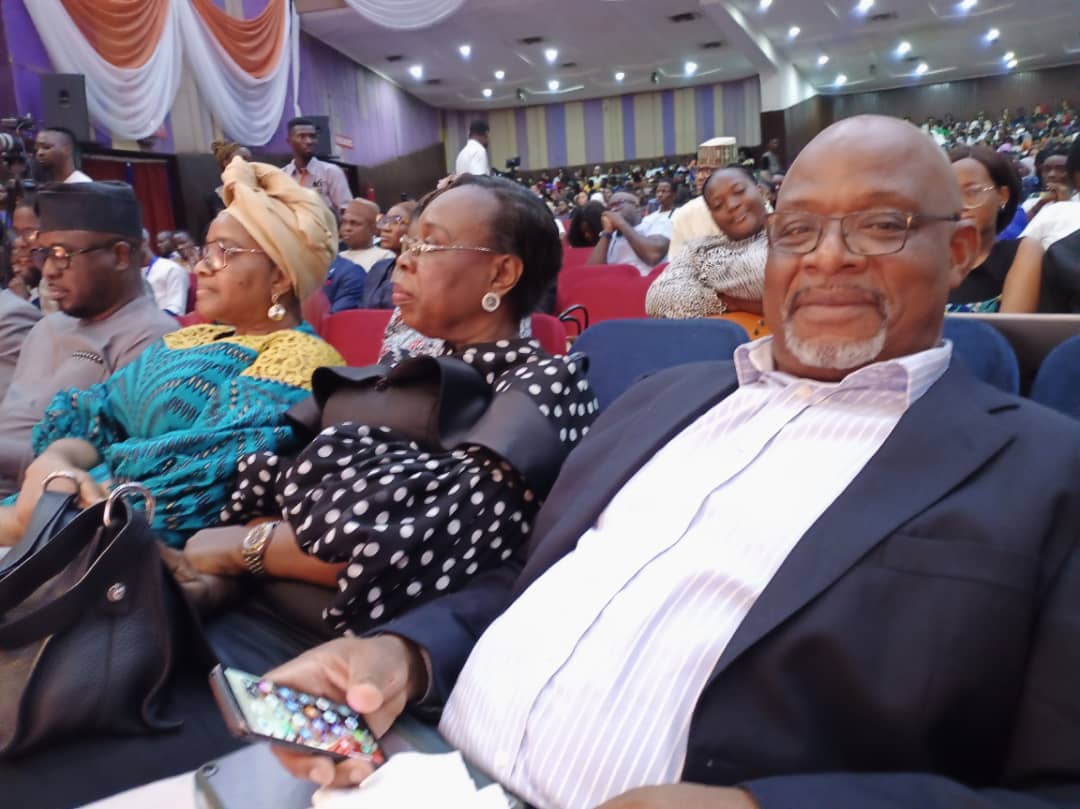
By Izuchukwu Ozoemena
Notable maritime personality and former President, African Ship Owners Association, Barr Temisan Omatseye, has strongly deplored the situation whereby in this time and age,
foreign interests still control about 98% of Nigeria’s cargo resources in terms of shipment of export and import especially oil and gas cargo, leaving a paltry 2% for indigenous operators.
He reminds the Federal Government that this anomaly has been allowed to persist despite the abundant maritime potentials and human capabilities Nigerians possess.
Omatseye, the former Director General, Nigerian Maritime Administration and Safety Agency (NIMASA), stated this in Lagos, Friday, while delivering a keynote address at the Taiwo Afolabi Annual Maritime (TAAM) Conference put together by the SIFAX Group in league with the Maritime Forum of the University of Lagos.
He spoke on the topic ‘Measurable Standards In The Nigerian Maritime Industry:Forging A Path Towards Sustainable Shipping’.
Omatseye reminded the audience that as a major maritime nation, Nigeria has in excess of 90sq kilometres of ocean waters, 850 nautical miles of coastlines and over 4,000kilometres of inland waterways and eight seaports, which make her a rich and great maritime nation.
Following the monopoly of operations which the Federal Government allows foreign liners in lifting and importing cargo, he regretted, indigenous shipping firms have become depressed and incapacitated; foreign liners now enjoy a field day, imposing all manner of arbitrary freight and sundry charges on Nigeria-bound cargo to the disadvantage of Nigeria, her economy and her people.
One way this problem can be addressed, he said, is for the Federal Government to commence with despatch what he calls a Fleet Replacement Programme to enable indigenous shipping lines acquire modern vessels that meet current technology and global acceptance in shipping.
“One of the quickest ways to achieving this is through the immediate disbursement of the Cabotage Vessel Financing Fund, CVFF, which has accrued since 2004 from 2% of every contract awarded under the Coastal and Inland Shipping Act 2003.”
He was emphatic that no reason should further delay the disbursement of the fund through implementable regulations at this time to serve the purpose for which it was created.
As a matter of urgency, he added, government should begin to grant national carrier status to indigenous shipping companies as provided for in section 36 of the NIMASA Act, 2007, which statutorily empowers such national carriers to lift all project cargoes belonging to the Federal, State and Local Governments in the country. Government, he suggested, must begin to operationalize Nigerian laws in order to discourage foreigners from intimidating indigenous operators.
He called for the establishment of more deepsea ports and ship repair and building infrastructure in designated free trade zones.
“The establishment of Shipping Free Trade Zones which would create Original Equipment Manufacturing (OEM) is necessary at this point. To achieve this, the government should put measures in place for the optimal functioning of the Ajokuta Rolling Mill for the large quantities of steel products that would be required”.
A deliberate policy for manpower training and tax-free remittances of seamen, he said, is desirable even as welders with international certification should be trained in Nigeria. Marine architects, nautical engineers and the like must be locally trained to design local vessels that meet global standards in terms of quality and specifications.
Omatseye strongly recommended that the Lagos anchorage be made an international shipping hub by providing dedicated areas for bunker operations.
The Federal Government should work with her training institutions to design international LNG bunker operations while a fleet development programme will enhance the construction of new-build vessels to run on both diesel and natural gas.
At the event, Chairman of the SIFAX Group, Dr. Taiwo Afolabi who was represented by Bode Ojeniyi, the Managing Director, Sky Capital (a subsidiary of the SIFAX Group) noted that the days of over-reliance on oil for Nigeria’s economic sustenance were over, especially given the uncertainties in the global oil and gas market as well as the rising need for cleaner sources of energy. This makes it imperative that potentials the country’s maritime sector has to offer are urgently exploited.
“Looking carefully at the theme of this year’s conference,” Afolabi stated, “you will discover that it is an ambitious one, as we are looking beyond positioning in Africa. Judging by the potential of the industry, we are of the opinion and belief that Nigeria’s maritime industry can rank among the best in the world. It will only take careful planning, progressive policies, generous funding, enabling environment, friendly economic policies, manpower development and massive infrastructural development.”
“A good foundation for sustainable growth and positioning we earnestly crave has been laid. The sector has professionally-run government agencies including the Nigerian Ports Authority, NIMASA and the Nigerian Shippers Council that have contributed significantly to the growth that we already have.”
Director General of NIMASA, Dr Bashir Jamoh who was represented by
the Director of Internal Audit, Mrs. Olamide Odusanya, observed that
the theme of this year’s event is in sync with the vision of the agency to remain a leading Maritime Administration in Africa.
He said that NIMASA is committed to her core functions of ensuring safety and security of lives, cargo and even the vessels within the country’s maritime domain while also not losing focus of her shipping development functions as well.
Maritime Agencies
NNPP Leadership Tussle: FCT High Court Compels INEC To Deal With Aniebonam As Authentic Leader.
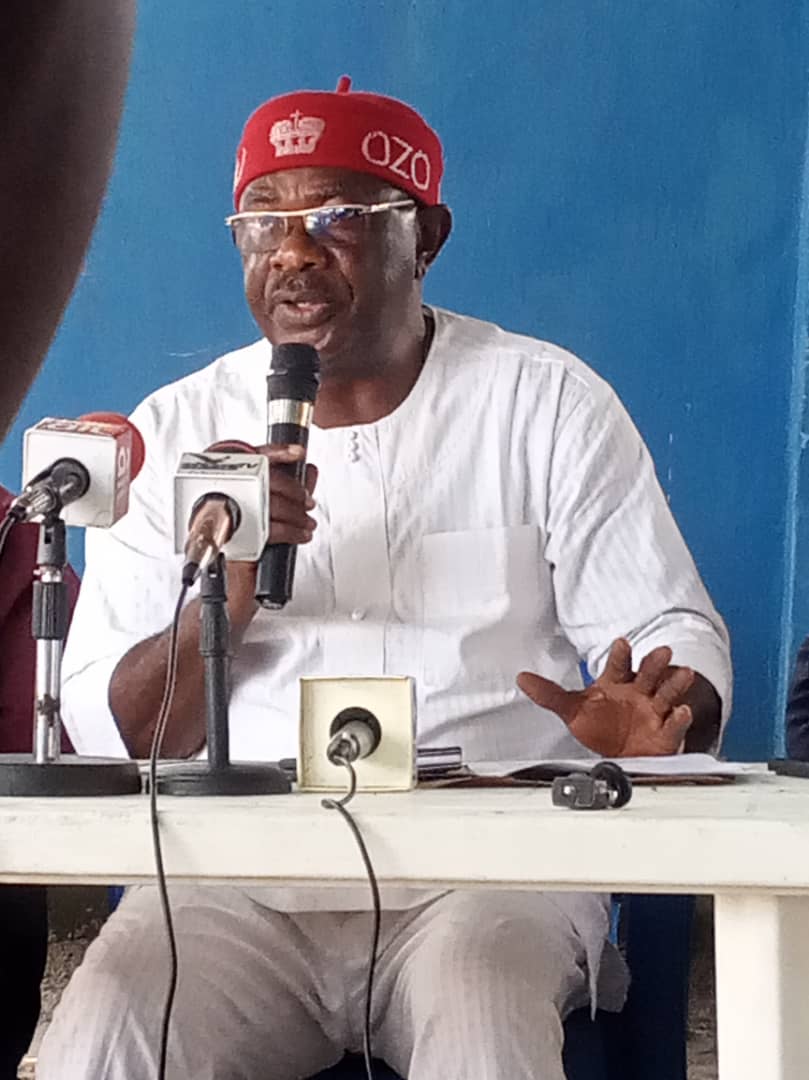
By Izuchukwu Ozoemena
If there is any iota of dispute regarding the authentic leadership of the New Nigeria People’s Party (NNPP), this was permanently laid to rest, Thursday, as the Federal Capital Territory (FCT) Abuja High Court, in a landmark ruling, reaffirmed Dr Boniface Aniebonam as the apex leader.
The High Court dismissed the suit filed by Dr. Ahmed Ajuji and 20 others contending the position of Aniebonam and Dr Agbo Major as Board of Trustees (BOT) Chairman and National Chairman respectively.
It is recalled that in the aftermath of the 2023 elections, the NNPP has been plagued by internal wrangling and factionalization
to a point the plaintiffs in this matter claim that Aniebonam and other party leaders had been expelled and could no longer exercise leadership rights within the Party.
Segun Fiki, Esq., C.F. Odiniru, E.C. Nwanya, and Arnold Ubua, counsel for Aniebonam and co, the defendants, described the prayers of the plaintiffs as an attempt to interfere in the internal affairs of the NNPP, an area which is beyond the courts’ jurisdiction.
They referred to the judgment of the Abia State High Court (Suit No.: HUZ/11/2024) delivered on November 1, 2024, which had already reaffirmed the legitimacy ofenda the Board of Trustees led by Aniebonam as the ultimate governing authority of the NNPP.
Delivering the judgment, Justice M.A. Hassan concurred with the argument of the defendants’ counsels that the court lacked jurisdiction to adjudicate on the matter, as it stood within the jurisdiction of the internal affairs of the NNPP.
The judicial system, the Judge stated, can only rule on issues concerning the nomination of candidates for elections, not on party leadership disputes or internal governance matters.
“The courts have consistently maintained that internal party leadership issues are non-justiciable, as reaffirmed by both the Court of Appeal and the Supreme Court.
“Consequently, I have no option but to dismiss this suit for lack of jurisdiction,” Justice Hassan declared.
This emphatic ruling puts to rest the protracted leadership tussle spearheaded by the Kwankwaso-led faction, as it affirms that the NNPP under the stewardship of Dr Aniebonam remains the original and lawful reference point on matters pertaining to the Party.
The judgment also validates the recent ward, local government, zonal, and state congresses, as well as the National Convention, all conducted under the legally recognized leadership of Dr. Agbo Major.
With the legal obstacles now removed, the path is clear for the duly elected national officers to administer the NNPP without further distractions.
The ruling also places the Independent National Electoral Commission (INEC), a defendant in the case, in a position where it must now recognize and engage with the authentic leadership of the NNPP in line with the judicial pronouncements from both the Abia State High Court and the High Court of the FCT.
This decision, observers say, is a monumental victory for democracy, party unity, and the rule of law, reaffirming that the NNPP’s true leadership, led by Dr. Boniface Aniebonam and Dr. Agbo Major, remains the only legitimate authority within the party.
With what has often been described as distraction now resolved, the NNPP can now focus on its primary mission: providing a credible and formidable alternative in Nigeria’s political landscape.
The party leadership calls on all well-meaning members to align with the legally recognized leadership and work towards the advancement of the party’s vision and mission.
Maritime Agencies
MARAN Hosts Discussion on Nigeria-China Currency Swap Deal: Opportunities, Challenges
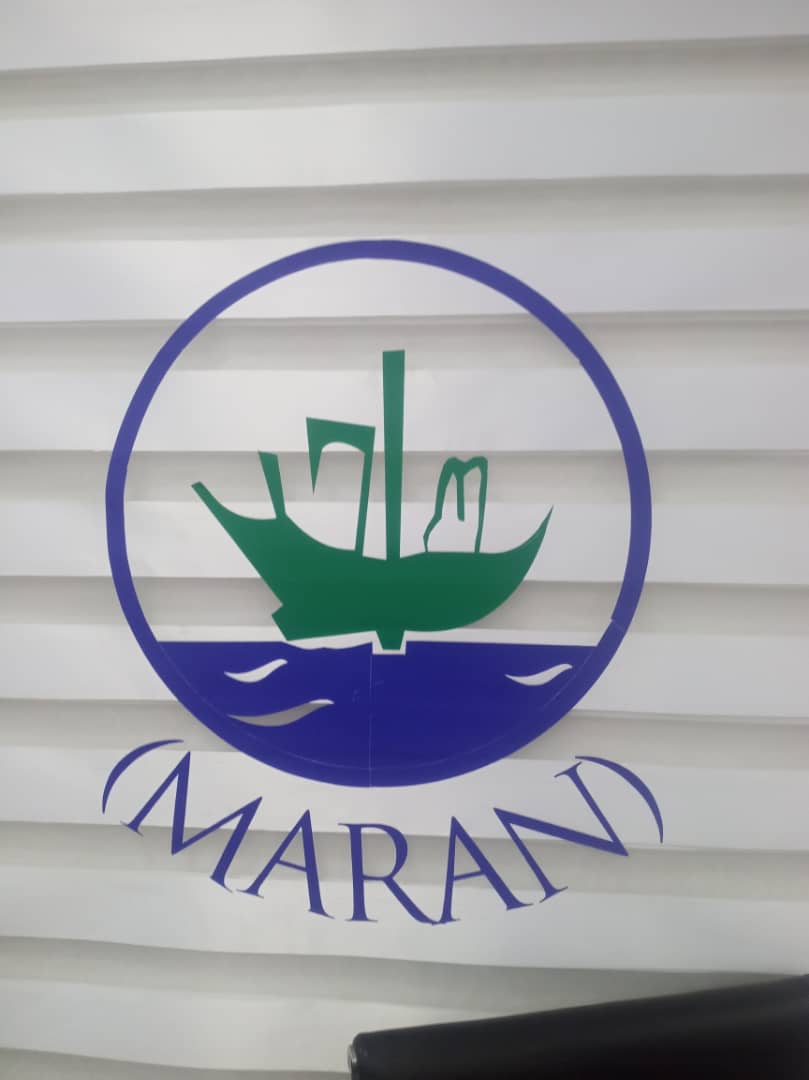
By Izuchukwu Ozoemena
Come April 15, 2025, the Maritime Reporters’ Association of Nigeria (MARAN) will play host to a top- flight event with the theme “Navigating the Nigeria-Peoples Republic Of China Currency Swap: Opportunities and Challenges for Import, Export and Maritime Business”.
The landmark event which takes place a the Rockview Hotel, Apapa GRA, Lagos, will bring together critical stakeholders in the import and export business, policy-makers, and government agencies to examine the Nigeria-China Currency Swap deal and the implications on Nigeria’s maritime industry.
The currency swap agreement, worth 15 billion Yuan ($2 billion), enables the direct exchange of the Chinese Yuan and the Nigerian naira, bypassing the US dollar.
This groundbreaking deal, according to Godfrey Bivbere, President of MARAN, is expected to foster stronger bilateral trade, between Nigeria and China by reducing transaction costs and boosting economic cooperation.
The MARAN President emphasized that in line with her role agenda-setting role, the association recognizes the importance of interrogating the policy further considering the debilitating effect of the American dollar on importation and China’s significant role as Nigeria’s biggest import partner.
Participants expected at the event include the Central Bank of Nigeria (CBN), the Nigeria-China Strategic Partnership (NCSP) and the Chinese Embassy in Nigeria.
Others are the Ministry of Finance, importers, exporters, maritime operators, policy-makers, economists, financial institutions, and trade organizations.
The event aims to provide an enhanced understanding of the Nigeria-Peoples Republic Of China currency swap and its impact on stakeholders in import, export, and maritime businesses.
The meeting will also identify potential risks and opportunities arising from China’s growing economic influence in Nigeria and provide actionable recommendations for stakeholders to navigate changes in the trade and maritime landscape.
Maritime Agencies
Zoe Maritime Breakfast Meeting: NCDMB, NIWA, LASWA Discuss Maritime Logistics, Sustainability of Ocean Economy.
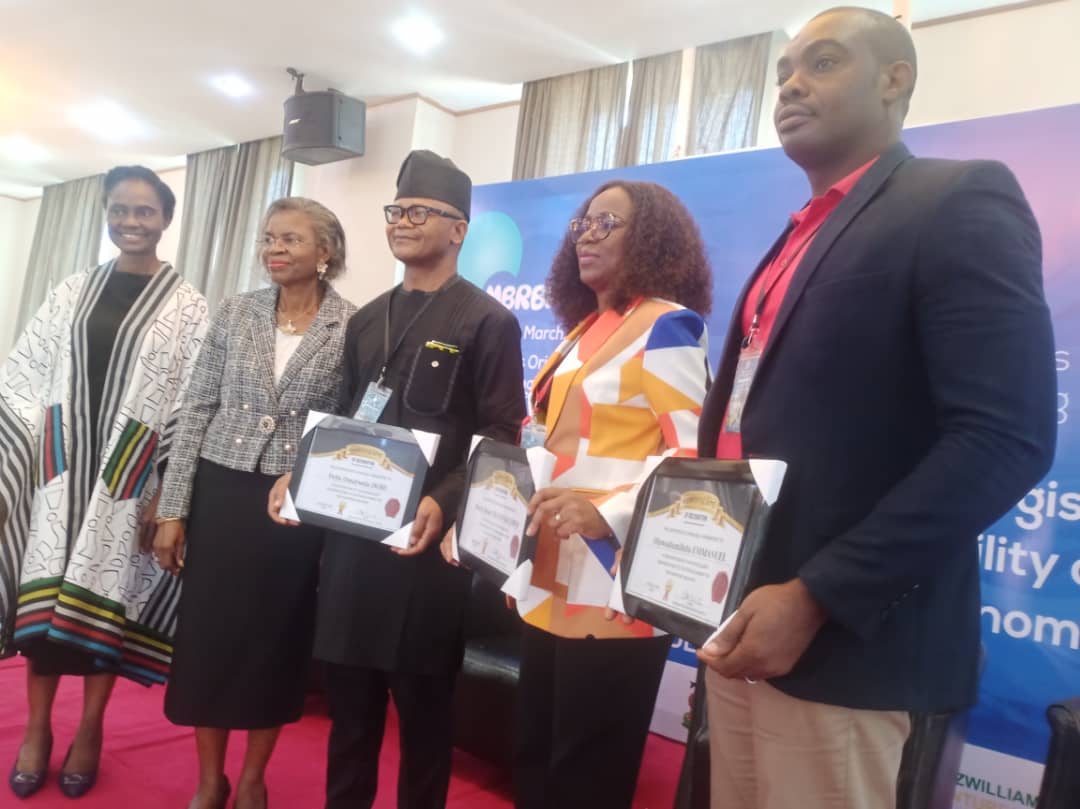
By Izuchukwu Ozoemena
In furtherance of a mandate to champion local human resources input into operations in Nigeria’s oil and gas sectors, the Nigerian Content Development and Monitoring Board (NCDMB) has instituted the Nigerian Content Forum
However, the agency’s intervention in the maritime space has been challenging as she struggles with in-country value addition and pushback in efforts to make progress.
NCDMB Executive Secretary/CEO, Mr Felix Omatsola Ogbe stated this in Lagos, Thursday, during a panel discussion at the 2025 edition of the Maritime Business Roundtable Breakfast Meeting organized by Zoe Maritime Resources Ltd with the theme ‘Maritime Logistics and Sustainability of the Ocean Economy’. Other dignitaries on the discussion included Oluwadamilola Emmanuel, General Manager, Lagos Waterways Authority (LASWA), Engr Elsie Egwuatu, Head of Marine, Lagos Area Office of the National Inland Waterways Authority (NIWA) and Ruth Ikem Chukwukezirim, CEO, Global Energy & Logistics.
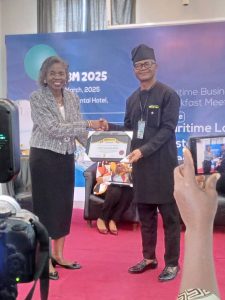
Mr Ajimijaye receiving a souvenir on behalf of NCDMB Executive Secretary/CEO.
Speaking through Silas Omomehin Ajimijaye, General Manager, Research, Statistics and Development, the NCDMB boss referred to the $350 million intervention fund up for grabs by local shipping companies. Not less than 10 Nigerian companies, he explained, have accessed the facility.
“As a matter of fact, before I came here, I was speaking with one of those companies that have benefitted from our intervention. A good example is Starzs Group. They said they are very happy with what NCDMB has done to help them as a as a company. I know the MD, Iro Ogbeifun, a lady who is doing so fantastically well. That is one of those cases we talk about women empowerment. The company is doing well. Not only them, there are several others we are working with to deepen in-country value addition in the maritime sector.”
The fund which keeps growing is disbursed as a single digit loan businesses use and pay back. “This fund is being managed by the Bank of Industry (BOI). Every now and then, they provide a report to show how it is going.”
On collaboration with other agencies, Mr Ajimijaye said part of NCDMB’s mandate is to collaborate with NIMASA to deepen local content through the Nigerian Content plan which should be enshrined into every contract arrangement.
“You have to state what Nigerian Content plan you have now and what you plan to do. Even with manning vessels, you have to show what you have currently and how you want Nigerians to understudy foreigners and possibly integrate them into the system.”
“There is what we call the baseline census for the marine services sector. What this means is that for the companies which are into marine services in the oil and gas sector, we want to do a census, a survey. What is the capacity, the capabilities? How many vessels do they have? Who are the Nigerians there? Who are the foreigners there? What are they doing and what are their challenges? When we analyse the data, we do what we call a gap analysis and have a clear data-driven scenario and recommend to government ways to bridge gaps.”
“We also recognize our partners – NIMASA, NIWA, various other institutions and industry players to collaborate to solve the problems.”
For instance, he explained, what NCDMB calls the Nigerian Content intervention fund is based on a study carried out to realize that people have financial challenges.”
The fund is given to a development bank to help NCDMB administer instead of leaving the money in the Central Bank.
On reducing joblessness among trained seafarers, the NCDMB boss explained that his agency’s intervention is a continuous process.
“For some of them, we do the training and try to source seatime places for them. It is a very big challenge to engage them on vessels for seatime experience. They have the training, certification and exposure. It’s been very fantastic but the problem is the size of the industry. Right now, you can’t take everybody. Entering the programme has always been very competitive. For those who have participated, you can rarely find anyone who has gone through that internship training roaming the streets. It’s only those who have not had the opportunity to have the exposure. The cadet internship training programme is a continuous process. Apart from cadets, we have training for marine surveyors. We give them scholarship. Thereafter, they’re expected to launch out into the world.”
NCDMB recommends that after training, the cadets are not expected to wait for the agency to engage them because it does not have the jobs.
“We are not a maritime company. We’re just to build and launch you to find work anywhere in the world.”
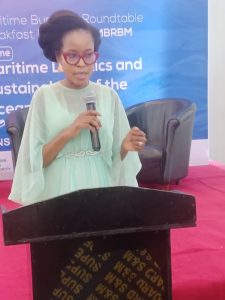
Engr Elsie Egwuatu, Head of Marine, NIWA, Lagos Office.
In a presentation, the National Inland Waterways Authority (NIWA), the statutory regulator of the inland waterways, outlined her critical role in promoting maritime logistics and the sustainability of the ocean economy by making operations on inland waterways safe and seamless. Represented by Engr Elsie Egwuatu, Head of Marine, NIWA, Lagos Office, the
agency dwelt on critical areas of concern currently including maritime accidents and safety, delays, disruptions and navigational challenges which are being tackled headlong with huge assistance from the Minister of Marine and Blue Economy, HE Adegboyega Oyetola.
NIWA, she stated, has also ensured the development of indigenous technical and managerial skills to meet the challenges of modern inland waterways transportation.
In her welcome address earlier, the Chair, Zoe Maritime Resources Ltd, Barr (Mrs) Oritsematosan Edodo-Emore said that as a coastal nation, it is important for Nigeria to harness ocean resources and develop her economy in a manner that sustains her teeming population while eradicating poverty in the land. Maritime logistics, she observed, is an acute driver of the ocean economy.
“In this digital age, it is important to evaluate how logistics is affecting the development of the ocean economy. What are our obligations in maritime logistics? What are the opportunities and how can these be harnessed to uplift the Nigerian populace and, by extension, develop the African continent?”
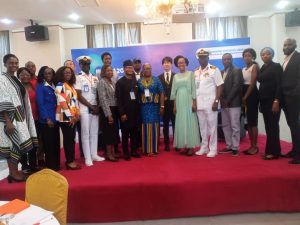
Other participants in the panel discussion included the representative of Oluwadamilola Emmanuel, General Manager, Lagos Waterways Authority (LASWA), the Nigerian Navy and Mrs Ruth Ikem Chukwukezirim, CEO, Global Energy and Logistics.
-
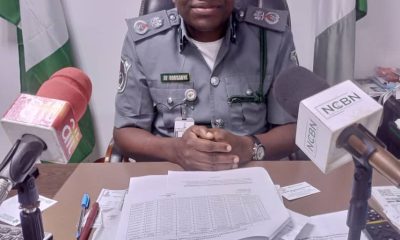
 Maritime Agencies3 weeks ago
Maritime Agencies3 weeks agoLilypond Export Command Is Meeting Expectations, Handles 70% of Nigeria’s Total Tonnage of Export Cargo, says CAC Odusanya.
-
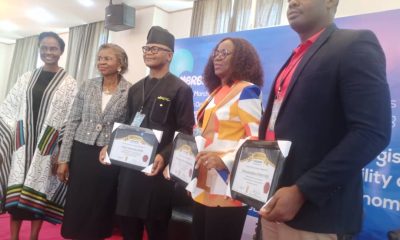
 Maritime Agencies1 week ago
Maritime Agencies1 week agoZoe Maritime Breakfast Meeting: NCDMB, NIWA, LASWA Discuss Maritime Logistics, Sustainability of Ocean Economy.
-
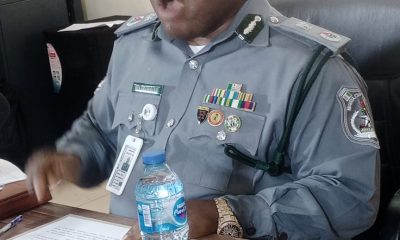
 Maritime Agencies3 weeks ago
Maritime Agencies3 weeks agoSEME CUSTOMS: Dr Oramalugo Dares Smugglers, Seizes N267m Illicit Drugs, PMS, Rice In A Month
-
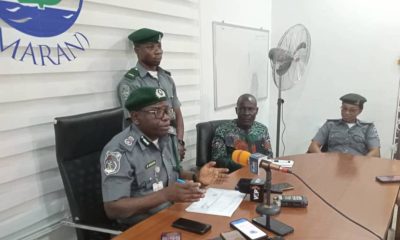
 Maritime Agencies3 weeks ago
Maritime Agencies3 weeks agoCustoms Export Command Seeks Seamless Movement To Ports To Evacuate Export Containers
-

 Maritime Agencies2 weeks ago
Maritime Agencies2 weeks agoANTI-SMUGGLING: Kebbi Customs Generates N13.3M In A Month, Confiscates Contrabands Worth N84.2 M.
-
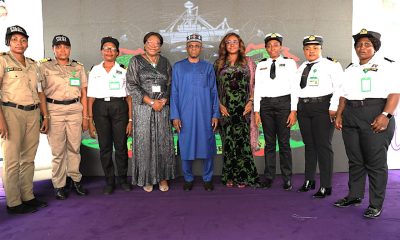
 Maritime Agencies3 weeks ago
Maritime Agencies3 weeks agoINTERNATIONAL WOMEN’S DAY, 2025: NPA Pledges Equal Rights For Women In the Workplace.
-

 Maritime Agencies2 weeks ago
Maritime Agencies2 weeks agoPorts Commissioner of Police Commends Bivbere-led MARAN for Responsible Reportage of Maritime Sector
-
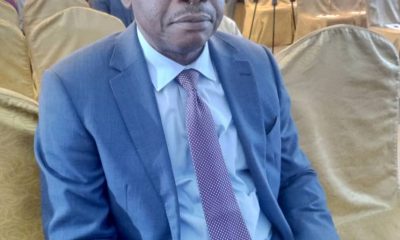
 Maritime Agencies2 weeks ago
Maritime Agencies2 weeks agoMAN, Oron, Sponsors Inland Waterways Safety Awareness Campaign, Donates Life Jackets.


























